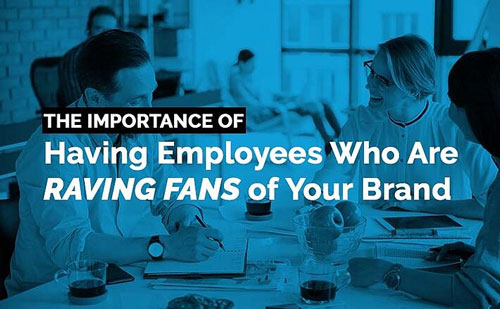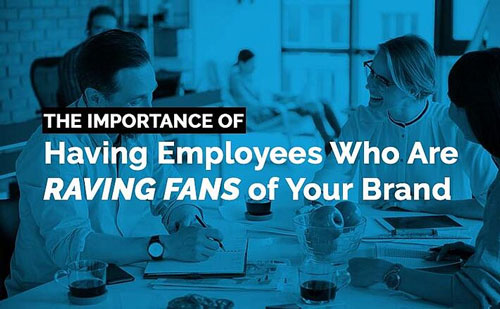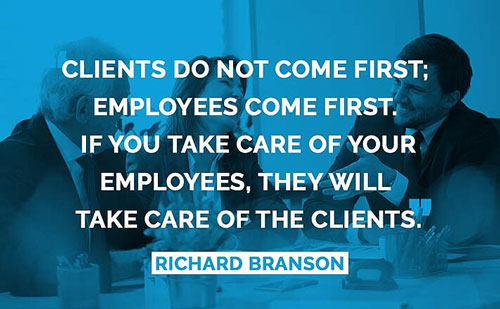Do Your Employees Believe in Your Brand? – SilkCards

Category: :: 01/07/2020

No matter what industry you are in and what product or service you offer, building and maintaining your corporate brand is essential to a thriving business. While you may have poured over colors and fonts for your logo, sifted through stacks of synonyms for your company name, and spent weeks crafting your mission statement, if your employees don’t live your brand, it’s likely to fizzle… right along with your profits.
Why Having Employees Who Are Raving Fans Is Important to Branding
While you may consider your customer service reps or the receptionist fielding phone calls to be the “low man on the totem pole,” that couldn’t be further from the truth. Your employees are on the front lines. Their customer service skills can make or break a sale, not to mention a future relationship with a client. Knowing that, would you rather have an employee who is disengaged, gruff, and counting down the minutes until their shift is over or someone who can’t stop singing your praises because they are treated well, appreciated, and well compensated?
Related: Why Brand Culture Matters in an Organization (and How to Kill It)
How to Tell If Employees Are Not Engaged in Your Brand and Culture
Keep an eye out for these subtle (and sometimes not-so-subtle) signs that your employees are not engaged:
- Lack of communication – Have your employees stopped approaching you with challenges or ideas? Are they talking behind your back?
- Lack of striving for improvement – Are employees barely reaching goals?
- Lack of teamwork – Are employees disengaged from one another both work-wise and socially?
- Lack of cooperation – Do employees drag their feet when given a task to do?
- Counting down the minutes – Everyone wants to go home and live their life, but do your employees seem obsessed about the time?

Related: Branding vs. Marketing: 4 Key Reasons Why Your Business Needs Both
Do You Have a Brand… That Employees Believe in?
Your employees can’t be engaged and be ambassadors of your company’s brand if you don’t have one.
If you haven’t yet defined and communicated who you are, creating a brand identity along with a mission statement and a list of core values is the first step. Seth Godin explains brand as “the set of expectations, memories, stories and relationships that, taken together, account for a consumer’s decision to choose one product or service over another.”
Related: What’s the Difference Between Brand Identity and Brand Strategy?
Ask yourself the following questions when building your brand:
- What problem do we fix? This involves some market research to see what challenges your ideal customer is facing.
- Why do we do it? Why did you come into existence? What is your company’s central narrative?
- What makes us different? Why should they choose you as opposed to another company?
- What is our company’s personality? Are you fun and silly? Serious? Dependable?
Once you’ve answered these questions, you can get to work crafting your mission statement. If you already employ a team, consult with them as to what they believe your core values are. This will allow you to determine where your company is at and in what direction you need to lead them.
Do You Have a Culture That Inspires Employees to Believe in Your Brand?
While company “culture” has become a bit of a buzzword, a thriving culture is essential to a thriving business. In order for employees to become brand ambassadors, they have to buy in to your purpose and see themselves as a piece of the puzzle. How you treat your employees will have everything to do with whether or not they bring their best selves to work every day, and whether they shout your praises from the rooftops. Here are a few ways to mold your culture to foster loyal employees:
- Respect your team members and compensate them well.
- Offer opportunities for further education and advancement within your company. Or, if there are no opportunities for advancement, provide them with the skills and the encouragement to grow and fly off from the nest someday (but hope that they’re happy enough to stay).
- Communicate the company’s purpose clearly and help your employees understand how important they are to the success of the business.
- Empower your employees to make decisions, address problems, and offer up solutions. Remember that they are on the front line and can recognize challenges before they turn into full blown disasters.
Related: 6 Business Card Printing Methods to Inspire Your Branding Strategy
Your employees can be your greatest assets or your worst enemies depending on how you treat them. Create a company brand and culture that your employees can support, and they will become your biggest fans and your best word of mouth.

